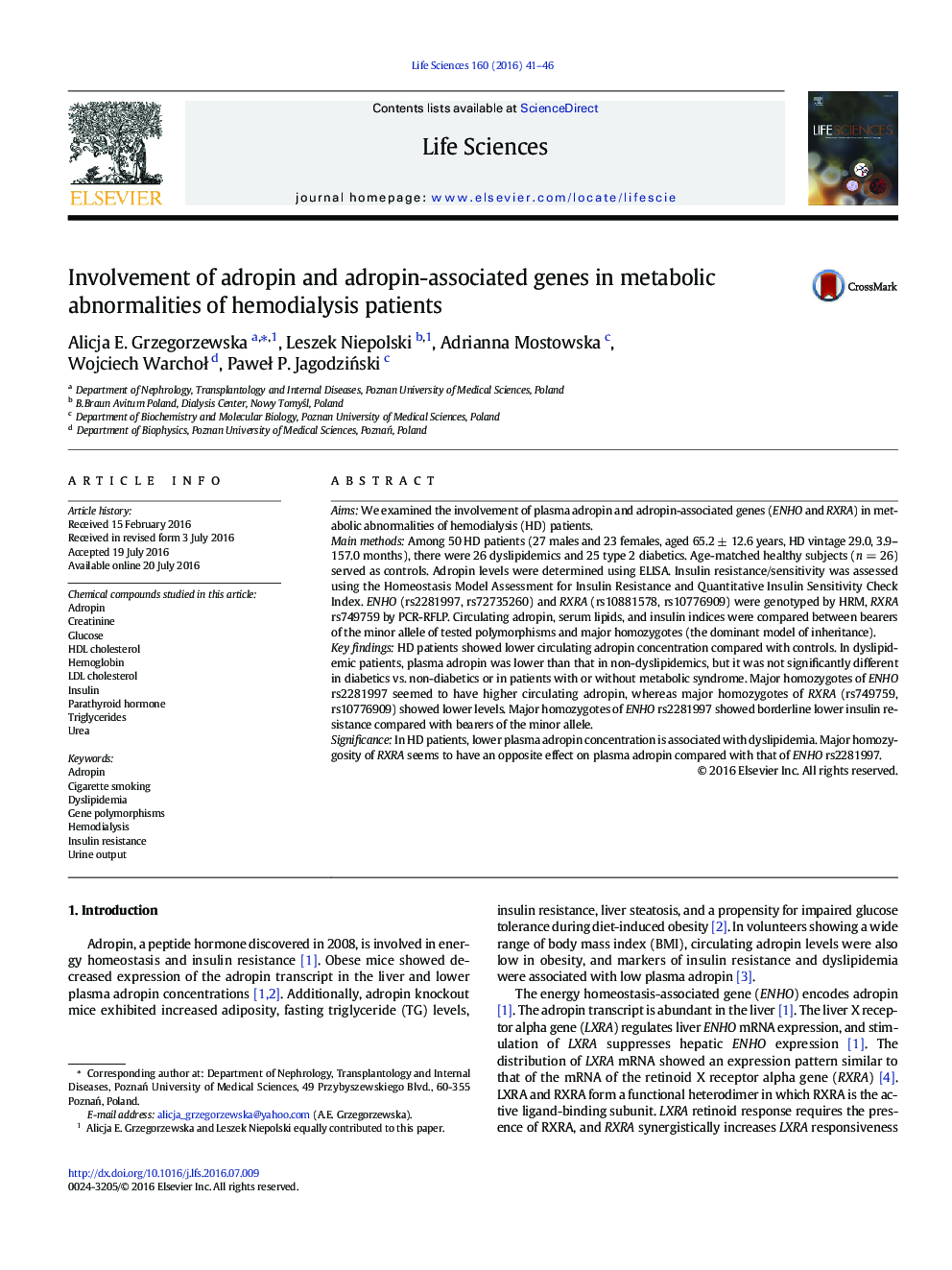| کد مقاله | کد نشریه | سال انتشار | مقاله انگلیسی | نسخه تمام متن |
|---|---|---|---|---|
| 2550391 | 1560568 | 2016 | 6 صفحه PDF | دانلود رایگان |
AimsWe examined the involvement of plasma adropin and adropin-associated genes (ENHO and RXRA) in metabolic abnormalities of hemodialysis (HD) patients.Main methodsAmong 50 HD patients (27 males and 23 females, aged 65.2 ± 12.6 years, HD vintage 29.0, 3.9–157.0 months), there were 26 dyslipidemics and 25 type 2 diabetics. Age-matched healthy subjects (n = 26) served as controls. Adropin levels were determined using ELISA. Insulin resistance/sensitivity was assessed using the Homeostasis Model Assessment for Insulin Resistance and Quantitative Insulin Sensitivity Check Index. ENHO (rs2281997, rs72735260) and RXRA (rs10881578, rs10776909) were genotyped by HRM, RXRA rs749759 by PCR-RFLP. Circulating adropin, serum lipids, and insulin indices were compared between bearers of the minor allele of tested polymorphisms and major homozygotes (the dominant model of inheritance).Key findingsHD patients showed lower circulating adropin concentration compared with controls. In dyslipidemic patients, plasma adropin was lower than that in non-dyslipidemics, but it was not significantly different in diabetics vs. non-diabetics or in patients with or without metabolic syndrome. Major homozygotes of ENHO rs2281997 seemed to have higher circulating adropin, whereas major homozygotes of RXRA (rs749759, rs10776909) showed lower levels. Major homozygotes of ENHO rs2281997 showed borderline lower insulin resistance compared with bearers of the minor allele.SignificanceIn HD patients, lower plasma adropin concentration is associated with dyslipidemia. Major homozygosity of RXRA seems to have an opposite effect on plasma adropin compared with that of ENHO rs2281997.
Journal: Life Sciences - Volume 160, 1 September 2016, Pages 41–46
